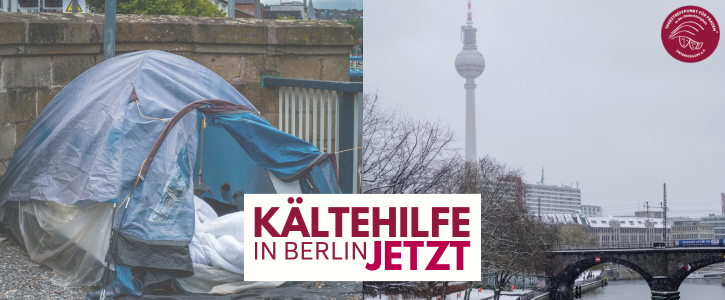NEWS FROM BERLIN
Queer shelter in Berlin fights against displacement
The oldest queer housing project in Berlin, Plutonia, has lived in the Tuntenhaus in Kastanienallee since 1997. But it was sold last February. The residents fear that the last piece of subculture on Kastanienallee will be displaced. They are fighting for the district of Pankow to exercise its right of first refusal and to turn it into a co-operative. The fight is against the clock, as the right needs to be exercised before May. Source: nd
Colour attack on Brandenburg Gate: trial against climate activists suspended
The trial against two climate activists because of the paint attack at the Brandenburg Gate has been suspended for the time being. The Tiergarten district court halted the proceedings against two members of the “Last Generation” climate group. The reason is a dispute over the cost of cleaning the Berlin landmark after the attack on 17 September 2023. The defence affirms the costs would not have amounted to more than 25,000 euros “with expert cleaning.” According to the prosecution, however, they rose to 55,000. The estimated total damage is 115,000 euros. Source: rbb24
NEWS FROM GERMANY
Climate money: it’s simple
It is hardly surprising that social injustices are also manifested in the energy transition and climate protection. For instance, the CO2 emissions of top earners are on average around 50 per cent higher than those of low-wage earners. The advantage of climate money is that everyone is relieved, but the lower income groups are relieved proportionally more. However, the climate money announced in the coalition agreement is likely not to materialise until 2026 or even 2027. That is why the Sanktionsfrei association and allies are now taking the payment of the climate money – at least to a symbolic number of people – into their own hands. Source: nd
Germany struggles with its pension system
The baby boomers are retiring. However, at the beginning of the 1960s, there were still six employees for every pensioner. Today this ratio is 2:1, continuing to fall. Who pays for the pensions of the elderly? To make it more complex, pensioners have become a significant group of voters. The pension system has therefore become the subject of fierce debate. Finance Minister Christian Lindner (FDP) presented a plan for managing the situation, making use of the financial market. Many politicians have also called for groups such as the self-employed and civil servants to be integrated into the statutory insurance system. Source: dw
Twice as much approval
According to the CDU-affiliated Konrad Adenauer Foundation, 14% of first-time voters in Germany believe the AfD is “most likely to solve the problems facing Europe.” This makes the extreme-right party the strongest force among first-time voters. The SPD comes in second, with roughly the same proportion, followed by the Greens (13%). The study also shows the proportion of potential AfD voters among 16 to 22-year-olds is more than twice as high as among all eligible voters. This high level of support for the extreme-right among first-time voters seems surprising because many of them, 81%, also support the EU. Source: taz
Naturalisation test in Germany: to include questions on the Holocaust and Israel
The Federal Minister of the Interior, Nancy Faeser (SPD), plans to have questions regarding the Holocaust, Israel’s right to exist and Jewish life in the state naturalisation test. Faeser declared to Der Spiegel that anyone who wants to become German must know “what that means and acknowledge Germany’s responsibility.” The Minister intends to amend a regulation for this “shortly.” The new questions for the naturalisation test, as reported by Der Spiegel, would include for instance the name of a Jewish house of prayer, when the state of Israel was founded, and the reasons for Germany’s special responsibility towards Israel. Source: presse augsburg
Die Linke’s four-day week: against neoliberal dogmas
Four-day week with full wage? In opposition to much of the neoliberal belief, Die Linke showed on Monday that nothing is more necessary today than a general reduction in working hours. This would free up time for social engagement as well as for recreation. It is also natural that publicly-owned areas of society make the start. After all, they encompass crucial areas such as nursing, education, public transport and waste disposal. The shortage of skilled labour is particularly serious in these areas, precisely because pay is still below average in many cases. Source: nd




